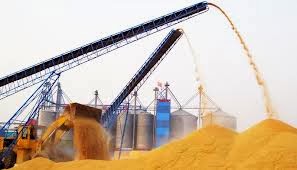
“They cannot bring their commodities to market in less time than a year. For that whole period they are obliged to borrow of the shoemaker, the tailor, the smith, the wheelwright, and the various other labourers, whose products they cannot dispense with, but which are completed in a few days or weeks.” (p 246)
But, in forestry that is even more pronounced. He quotes Kirchof (F. Kirchhof, Handbuch der landwirthschaftlichen Betriebslehre, Dessau, 1852, p 58)
“With forests producing certain species of trees the complete turnover takes as much as 150 years. Besides, a properly managed timber-growing establishment itself demands a supply of standing timber which amounts to ten to forty times the annual yield. Unless a man has therefore still other sources of income and owns vast tracts of forest land, he cannot engage in regular forestry.” (p 248)
Explaining why this means it is a business that has often been conducted by the State, Marx notes,
“The long production time (which comprises a relatively small period of working time) and the great length of the periods of turnover entailed make forestry an industry of little attraction to private and therefore capitalist enterprise, the latter being essentially private even if the associated capitalist takes the place of the individual capitalist. The development of culture and of industry in general has evinced itself in such energetic destruction of forest that everything done by it conversely for their preservation and restoration appears infinitesimal.” (p 248)
Marx compares the situation in forestry, described by Kirchof, with that in stock raising. That is, the amount of timber, or the amount of livestock, that is going through the production process, i.e. trees growing, cattle being fattened, has to be many times the amount that is annually being sold. That is because it takes so long for a tree to grow etc.
On the one hand, a forest or a herd, appear as fixed capital, that give up a part of their use value each year, i.e. the trees felled, or cattle slaughtered. But, in reality, the trees and the livestock constitute both raw material and instruments of labour. They are raw material, in the sense that each tree or animal passes through the production process, and its value is realised in the end product in one go, rather than piecemeal.
Both trees and animals are instruments of labour in the sense that they are the means of propagating more trees and animals.
 “Although this capital is a capital fixed in the process of production for a long time, and thus prolongs the turnover of the total capital, it is not a fixed capital in the strict definition of the term.
“Although this capital is a capital fixed in the process of production for a long time, and thus prolongs the turnover of the total capital, it is not a fixed capital in the strict definition of the term.
What is here called a supply — a certain amount of standing timber or livestock — exists relatively in the process of production (simultaneously as instruments of labour and material of labour); in accordance with the natural conditions of its reproduction under proper management, a considerable part of this supply must always be available in this form.” (p 248)
Another part of the capital, which turns over more slowly, in this way, is that stock of materials required for the production process, but which cannot all be used immediately.
“In this class belongs for instance manure before it is hauled to the field, furthermore grain, hay, etc., and such supplies of means of subsistence as are employed in the production of cattle.” (p 248-9)
Marx again quotes Kirchhof on the problems this can cause.
““A considerable part of the working capital is contained in the farm’s supplies. But these may lose more or less of their value, if the precautionary measures necessary for their preservation in good condition are not properly observed. Lack of attention may even result in the total loss of a part of the produce supplies for the farm. For this reason, a careful inspection of the barns, feed and grain lofts, and cellars becomes indispensable, the store rooms must always be well closed, kept clean, ventilated, etc. The grain and other crops held in storage must be thoroughly turned over from time to time, potatoes and beets must be protected against frost, rain and rot.” (Kirchhof, p. 292.)” (p 249)
What was said previously - Capital II, Chapter 6 - about the need for a supply of productive capital, applies here. The larger the capital, or the more protracted the process of circulation i.e. difficulties in obtaining commodities from the market, the larger the supply that must be maintained. For some large farms, they are unable to produce all of the materials they require, e.g. animal feed, themselves and have to buy it in from other farms.
Back To Part 3
Forward To Chapter 14
Back To Index
Back To Part 3
Forward To Chapter 14
Back To Index




No comments:
Post a Comment